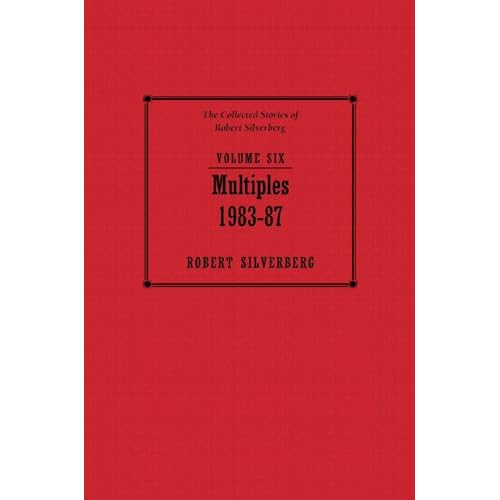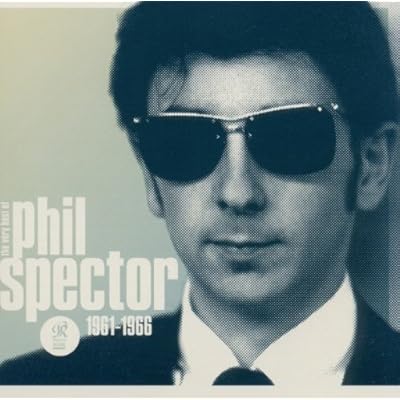
Robert Frost, in another context, made a comment about playing tennis without a net. That’s what I felt as I pushed through The Night Circus. Yes, there’s magic on practically every page. The Night Circus is an incredible place, full of marvels. Everything is possible. And that’s the fatal flaw of fantasy fiction. Without some limits, anything can happen. And it does. Although there is a competition between two master magicians, there’s no suspense, no thrills, no tension. It’s just magical incident piled upon magical incident. The Night Circus may be the first book in a projected trilogy. I won’t be reading the rest of the series. The Night Circus has 387 pages, but it felt twice as long when I was reading it. GRADE: C
MARGIN CALL
 I had hoped to like Margin Call more than I did. Margin Call is loosely based on the financial meltdown at Lehman Brothers. Kevin Spacey plays a character who has been part of the firm for 34-years and who acts of the conscience of the company. Stanley Tucci’s character, who works in the Risk Management office, discovers a disturbing trend in the trades the firm is making. But before he can completely prove his case, Tucci is fired. Zachary Quinto plays another analyst who takes Tucci’s findings and tweaks them until the truth becomes evident: the firm is already in jeopardy because of their trades in toxic assets. Simon Baker (The Mentalist) and Demi Moore aren’t given much to do. Jeremy Irons shows up as the CEO who will do ANYTHING to save the firm (and his stock options). There’s a subplot about a pet that I found completely gratuitous and phony. Still, this talented cast makes the most of a weak screenplay to portray the beginning of the financial crisis. GRADE: B
I had hoped to like Margin Call more than I did. Margin Call is loosely based on the financial meltdown at Lehman Brothers. Kevin Spacey plays a character who has been part of the firm for 34-years and who acts of the conscience of the company. Stanley Tucci’s character, who works in the Risk Management office, discovers a disturbing trend in the trades the firm is making. But before he can completely prove his case, Tucci is fired. Zachary Quinto plays another analyst who takes Tucci’s findings and tweaks them until the truth becomes evident: the firm is already in jeopardy because of their trades in toxic assets. Simon Baker (The Mentalist) and Demi Moore aren’t given much to do. Jeremy Irons shows up as the CEO who will do ANYTHING to save the firm (and his stock options). There’s a subplot about a pet that I found completely gratuitous and phony. Still, this talented cast makes the most of a weak screenplay to portray the beginning of the financial crisis. GRADE: B
HAPPY HALLOWEEN!

WHY READ MOBY DICK? By Nathaniel Philbrick
 I once had a film professor who exclaimed in class, “Why would any female want to read Moby Dick? There aren’t any women in the book!” Well, actually, there are. But you get the point. Once the whaling ship goes to sea, the all-male cast of characters dominates the book. Nathaniel Philbrick writes a moving tribute to Moby Dick (his favorite novel). Why Read Moby Dick? is a love letter to readers about this quirky book. I’m amazed Philbrick found someone to publish it. In these times of ebooks and neglect of the classics, Philbrick’s argument for reading Herman Melville’s odd novel is compelling. I know I wanted to drop everything and reread Moby Dick after finishing Philbrick’s insighful book. GRADE: A
I once had a film professor who exclaimed in class, “Why would any female want to read Moby Dick? There aren’t any women in the book!” Well, actually, there are. But you get the point. Once the whaling ship goes to sea, the all-male cast of characters dominates the book. Nathaniel Philbrick writes a moving tribute to Moby Dick (his favorite novel). Why Read Moby Dick? is a love letter to readers about this quirky book. I’m amazed Philbrick found someone to publish it. In these times of ebooks and neglect of the classics, Philbrick’s argument for reading Herman Melville’s odd novel is compelling. I know I wanted to drop everything and reread Moby Dick after finishing Philbrick’s insighful book. GRADE: A
MICROSTYLE: THE ART OF WRITING LITTLE By Christopher Johnson
 Microstyle is writing effective tweets, headlines, witty dialogue, titles, sound bites, brand names, domain names, slogans, taglines, company mantras, and bullet points. Like SHORT & SWEET. Branding consultant Christopher Johnson explores the techniques of poets, copywriters, brand namers, political speechwriters, and other professional verbal miniaturists to illustrate how to write effective, pithy messages. Microstyle goes beyond style guides like Strunk & White’s classic Elements of Style to focus on saying plenty with just a few words. Not only does Johnson deliver a heavy dose of linguistics, but he applies those principles to famous slogans and advertising campaigns to reveal how they work. I found the whole topic fascinating. GRADE: A
Microstyle is writing effective tweets, headlines, witty dialogue, titles, sound bites, brand names, domain names, slogans, taglines, company mantras, and bullet points. Like SHORT & SWEET. Branding consultant Christopher Johnson explores the techniques of poets, copywriters, brand namers, political speechwriters, and other professional verbal miniaturists to illustrate how to write effective, pithy messages. Microstyle goes beyond style guides like Strunk & White’s classic Elements of Style to focus on saying plenty with just a few words. Not only does Johnson deliver a heavy dose of linguistics, but he applies those principles to famous slogans and advertising campaigns to reveal how they work. I found the whole topic fascinating. GRADE: A
FORGOTTEN BOOKS #140: MULTIPLES By Robert Silverberg

Between Planet Stories reprinting omnibus volumes of Robert Silverberg’s short novels and Subterranean Press reprinting all of Silverberg’s science fiction short fiction, this is a great time to be a Robert Silverberg fan! Just released Multiples: The Collected Stories of Robert Silverberg Volume Six (1983-1987) presents some of Silverberg’s best work. “Sailing to Byzantium” won the Nebula in 1985 for Best Novella. As always, Silverberg’s “Introduction” sets the stories in the context of the Eighties and reveals insights into the publishing industry of that time. Subterranean Press deserves praise for continuing this wonderful series.
Table of Contents:
Introduction
Tourist Trade
Multiples
Against Babylon
Symbiont
Sailing to Byzantium
Sunrise on Pluto
Hardware
Hannibal’s Elephants
Blindsight
Gilgamesh in the Outback
The Pardoner’s Tale
The Iron Star
The Secret Sharer
House of Bones
FORGOTTEN MUSIC #20: WALL OF SOUND: THE VERY BEST OF PHIL SPECTOR 1961-1966

Record producers rarely achieve fame. Quincy Jones and George Martin are a couple of producers who became known through their association with artists: Michael Jackson in Jones’ case, the Beatles in Martin’s case. But Phil Spector achieved fame by producing hits by a number of artists: the Ronettes, Crystals, Righteous Brothers, Darlene Love, and even the Beatles. One of Spector’s musical innovations was “The Wall of Sound.” Spector created a dense, layered, reverberant sound that sounded great on AM radio and jukeboxes popular in the Sixties. Spector achieved this sound by having a number of electric and acoustic guitarists perform the same parts in unison, adding musical arrangements for large groups of musicians up to the size of orchestras, then recording the sound using an echo chamber. The result was a unique sound that’s instantly recognizable. This just released collection presents much of the range of Phil Spector’s early work. Highly recommended!
TRACK LIST:
1. He’s A Rebel
2. Da Doo Ron Ron
3. Be My Baby
4. Then He Kissed Me
5. (Today I Met) The Boy I’m Gonna Marry
6. Baby, I Love You
7. He’s Sure The Boy I Love
8. Zip-A-Dee-Doo-Dah
9. Wait Til’ My Bobby Gets Home
10. Walking In The Rain
11. Uptown
12. Why Do Lovers Break Each Others Hearts?
13. Do I Love You?
14. A Fine, Fine Boy
15. There’s No Other Like My Baby
16. You’ve Lost That Lovin’ Feeling
17. (The Best Part Of) Breakin’ Up
18. Not Too Young To Get Married
19. River Deep, Mountain High
THE PENGUIN ANTHOLOGY OF 20TH CENTURY AMERICAN POETRY Edited by Rita Dove
 Rita Dove’s just published collection is raising plenty of eyebrows: no Allen Ginsberg, no Sylvia Plath. We’re getting Rita Dove’s take on American 20th Century poetry and there are more than a few surprises. I haven’t been able to find a copy of the Table of Contents online so I’m just going to list all the poets in this volume so you get a sense of its range. I’m finding plenty of poets new to me to explore! GRADE: A
Rita Dove’s just published collection is raising plenty of eyebrows: no Allen Ginsberg, no Sylvia Plath. We’re getting Rita Dove’s take on American 20th Century poetry and there are more than a few surprises. I haven’t been able to find a copy of the Table of Contents online so I’m just going to list all the poets in this volume so you get a sense of its range. I’m finding plenty of poets new to me to explore! GRADE: A
PULP FICTION [Blu-ray]
 Quentin Tarantino’s break-through movie is finally available in Blu-ray format. It’s hard to believe this ground-breaking film came out in 1994. I don’t think Tarantino has been able to match Pulp Fiction in innovativeness (although Kill Bill comes close but it was two films). The video quality is outstanding. The aspect ratio is 2.35:1. The sound is DTS-HD 5.1 Master Audio. For fans of Pulp Fiction this version beats all the others. GRADE: A
Quentin Tarantino’s break-through movie is finally available in Blu-ray format. It’s hard to believe this ground-breaking film came out in 1994. I don’t think Tarantino has been able to match Pulp Fiction in innovativeness (although Kill Bill comes close but it was two films). The video quality is outstanding. The aspect ratio is 2.35:1. The sound is DTS-HD 5.1 Master Audio. For fans of Pulp Fiction this version beats all the others. GRADE: A
CASIO Men’s W800H-1AV Classic Digital Sport Watch


Rick Robinson mentioned that after wearing a digital watch for 20 years, he’s gone back to an analog watch. Strangely enough, the case of my Casio Calculator watch that I’ve worn for over 20 years suddenly cracked. The watch continues to function, but I can’t attach a wrist band to it. So I decided it was time for a new watch. Since my Casio gave me trouble-free service for a couple of decades, I looked at Casio’s extensive line of watches. Their popular G-Shock line of watches were too clunky for me. I wanted something simple, reliable, and durable. After some searching, I found the Casio’s Men W800H-1AV Classic Digital Sport Watch. It has a nice, readable display. It’s shock resistant (I can dive with it down to 330 feet!) and water resistant. And it has several types of alarms and a digital stopwatch. All this for $15! And the Casio’s Men W800H-1AV Classic Digital Sport Watch is guaranteed by Casio until 2099!